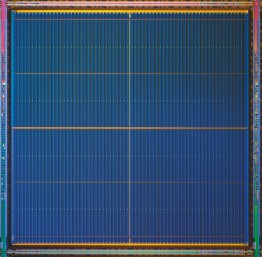CSE 372 (Spring 2007): Digital Systems Organization and Design Lab

|
|
This course is the lab component of CSE371.
Announcements
- [Apr 4] - Superscalar skeleton files are now available.
- [Apr 4] - Lab 3 testbench is now available; updated Lab 3 description.
- [Mar 24] - Lab 3: Pipelined processor is now available.
- [Mar 16] - Added lectures notes on Pipelined P37x Processor.
- [Mar 2] - Added ModelSim Advanced Features Tutorial
- [Feb 25] - Added Lab 2: Non-pipelined processor
- [Feb 16] - Added Lab 2 worksheet
- [Feb 16] - Added Xilinx PROM Tutorial
- [Feb 15] - Updated Peter's lab hours.
- [Feb 8] - The CSE372 PHPbb discussion board is now available
- [Feb 6] - Added Xilinx ISE Tips
- [Jan 15] - The Introduction lecture notes are now online
- [Jan 12] - Welcome to CSE372
Office Hours
The TAs are in the KLab at the following times:
- Monday: 4:30-7:30 (Andrew)
- Tuesday: 1:30-4:30 (Zheng), 4:30-7:30 (Tony), 7:00-9:00 (Peter)
- Wednesday: 1:00-3:00 (Zheng), 4:30-6:00 (Andrew)
- Thursday: 1:00-3:00 (Peter), 5:30-7:00 (Armand)
- Friday: 1:00-3:00 (Zheng), 4:30-6:30 (Armand)
Lecture Notes
- Unit 0 - Introduction
- Unit 1 - Verilog
- Unit 2 - FPGAs
- Unit 3 - Design and P37x Processor
- Unit 4 - Pipelined P37x Processor
- Unit 5 - Synthesis
- Unit 6 - Wrapup
Schedule
| Friday, Jan 12: | Introduction |
| Friday, Jan 19: | In-lab meeting for Lab 0 |
| Wed., Jan 24: | Verilog |
| Friday, Jan 26: | (swapped with CSE371) |
| Friday, Feb 2: | Verilog (continued) |
| Friday, Feb 9: | FPGAs |
| Friday, Feb 16: | Design and P37x Processor |
| Friday, Feb 23: | (CSE371 midterm) |
| Friday, Mar 2: | no class (spring break) |
| Friday, Mar 19: | no class (spring break) |
| Friday, Mar 16: | Pipelined P37x Processor |
| Friday, Mar 23: | Synthesis |
| Friday, Mar 30: | no class |
| Friday, Apr 6: | no class |
| Friday, Apr 13: | no class |
| Wednesday, Apr 18: | Wrapup & evaluations |
Additional Reading Materials and Resources
CSE372 tutorials:
- Instructions for mapping your eniac drive
- Xilinx Verilog Tutorial
- ModelSim Simulation Tutorial
- ModelSim Advanced Features Tutorial
- Xilinx Built-In Self Test Tutorial
- Xilinx ISE Tips
- Xilinx PROM Tutorial
Xilinx documentation:
- Xilinx Synthesis and Verification Design Guide - information on what synthesis results to expect given HDL input code.
- Xilinx Synthesis Technology (XST) User Guide - information about Xilinx primitives and Verilog examples that will synthesis to specific structures.
- Xilinx Constraints Guide - information about various synthesis parameters and tuning.
On-line Verilog references:
- The Elements of Logic Design Style by Shing Kong, 2001.
- On-line Verilog HDL Quick Reference Guide
- Useful Verilog links
In addition, the textbook for CSE371 (Patterson and Hennessy's Computer Organization and Design) has a Verilog tutorial on the included CD. Look for it under "tutorials" and "Verilog".
There is no additional textbook required for CSE372. However, we'll be using the Verilog hardware description language (HDL), so you may wish to obtain or consult one of the following books on Verilog:
- Verilog HDL Synthesis: A Practical Primer by J. Bhasker, 1998. A approximately 200 page overview of a synthesizeable subset of Verilog.
- Advanced Digital Design with the Verilog HDL by Michael Ciletti, 2003. Verilog plus lots of digital logic design (almost 1000 pages).
- HDL Programming Fundamentals: VHDL and Verilog by Nazeih Botros, 2006. A good interleaved description of Verilog and VHDL; it has approximately 500 pages, but as both VHDL and Verilog are covered, it doesn't cover that much more than Bhasker.
Course Syllabus
Course Description
This course is the lab component companion of CSE371. The focus of CSE372 is hands-on digitial logic design. The description from the course catalog:
Laboratory for CSE 371. In this laboratory section, students gain experience with digital design techniques by designing and implementing actual ciruits using Verilog HDL and FPGAs. Five assignments culminate in the design and simulation of a complete 16-bit integer pipelined CPU.
Prerequisites
CSE240 is an absolute prerequisite for this course. In addition, CSE372 is a co-requisite (that is, it must be taking CSE372 in parallel).
Grading
Grading breakdown for the course is as follows:
- Labs: 80% - The course project consists of six labs. The initial labs will be individual labs, the later labs will be done in groups of three.
- Exams: 20% - There will be one exam to test the material covered in the CSE372 lectures.
Academic Misconduct
Academic misconduct such as cheating will not be tolerated. The work you submit in this class is expected to be your own. If you submit work that has in part or in whole been copied from some published or unpublished source (including current or former students), or that has been prepared by someone other than you, or that in any way misrepresents somebody else's work as your own, you will face severe discipline by the university. (Adapted from text appearing at the Office of Student Conduct page.)
Any detected cases of cheating will be pursued. Penalties can include: receiving a zero on the assignment (the minimum penalty), failing the course, having a note placed in your permanent academic record, suspension, and ultimately expulsion.
See Penn's Code of Academic Integrity for more information.